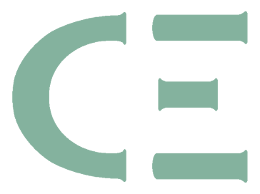Prospective Students
The Curriculum
An education in Computational Engineering requires an interdisciplinary curriculum. Faculty members from several engineering departments, as well as from the computer science, mathematics and physics departments are in charge of the program. Each of the application fields is carefully adapted to the student’s background, career goals, and research interests. The study plan tailored individually for each student will include adequate course work in:
- Computer science (e.g. algorithms, software engineering, computer architecture)
- Mathematics (e.g. two years of engineering mathematics, numerical analysis, numerical linear algebra)
- An application field from engineering or physical science: in this academic year, thermo- and fluid dynamics, mechatronics, computational optics, mechanics and dynamics, au- tomation and control, and information technology.
Because of the interdisciplinary nature of the curriculum, students take courses in subjects outside their area of specialization to prepare them for graduate courses. Graduates of the Computational Engineering program are well prepared for research and development positions in the industry, as well as for an academic career.
Goals of the Bachelor/Master Programs
Demand Graduates of both the bachelor and master program have excellent job prospects. With the double qualification in computer science and in engineering, graduates can be employed in both of these areas. Bachelor students can participate in advanced user-oriented courses by specializing early and can thereby obtain an attractive qualification for the job market. In the master program, subjects may be given more breadth and depth, so that students can be introduced to current topics of academic or industrial research. A successfully completed master?s degree will be acknowledged as prerequisite for being admitted to PhD programs at German universities. Actual admission to a PhD program, however, requires also proof of high research potential, as preferably demonstrated by an outstanding master’s thesis.
International Orientation The program complies the internationally accepted bachelor-master structure. The majority of the courses in the master program are in English, thus making it attractive for foreign students who do not speak German. At the same time, German students in the bachelor program are gradually introduced to English as an international scientific language. That way it becomes also easier for German students to work or study abroad after the bachelor program. The possibility of studying abroad is additionally enhanced by the program’s compatibility with the Anglo-American university system. Interdisciplinary. Computational Engineering is an interdisciplinary field. The program includes computer science, applied mathematics and an engineering field (TAF). Courses given jointly by faculty members from more than one department encourage interdisciplinary working.
Flexibility The integration of many different special fields requires a flexible organization of the study plans. Following the Anglo-American pattern, students are encouraged to choose an individualized study plan from a wide selection of fields to suit their individual interests. The program is modular, as defined by the examination regulations (Prüfungsordnung. In order to ensure optimal support students are assisted by special academic advisors (Studienberater) for the CE program on the one hand and by the assignation of a mentor on the other hand.
Educational Goal
The desired goal that is to be achieved by the study of Computational Engineering at the School of Engineering is the education of thoroughly skilled engineers with a specifically formed profile. Using the methodical skills and knowledge acquired during their education these engineers should be able to solve engineering tasks independently and responsibly which are located at the interface of the areas of computer science, applied mathematics, and an engineering discipline. They should also be able to develop new perceptions of their field of activity and to judge them critically.
